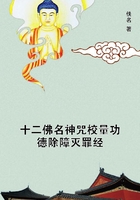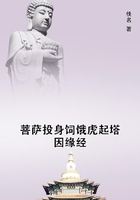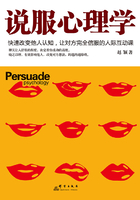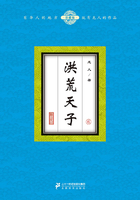In parts Collier was the first man among the nonjurors. In erudition the first place must be assigned to Henry Dodwell, who, for the unpardonable crime of having a small estate in Mayo, had been attainted by the Popish Parliament at Dublin. He was Camdenian Professor of Ancient History in the University of Oxford, and had already acquired considerable celebrity by chronological and geographical researches: but, though he never could be persuaded to take orders, theology was his favourite study. He was doubtless a pious and sincere man. He had perused innumerable volumes in various languages, and had indeed acquired more learning than his slender faculties were able to bear. The small intellectual spark which he possessed was put out by the fuel. Some of his books seem to have been written in a madhouse, and, though filled with proofs of his immense reading, degrade him to the level of James Naylor and Ludowick Muggleton. He began a dissertation intended to prove that the law of nations was a divine revelation made to the family which was preserved in the ark. He published a treatise in which he maintained that a marriage between a member of the Church of England and a dissenter was a nullity, and that the couple were, in the sight of heaven, guilty of adultery. He defended the use of instrumental music in public worship on the ground that the notes of the organ had a power to counteract the influence of devils on the spinal marrow of human beings. In his treatise on this subject, he remarked that there was high authority for the opinion that the spinal marrow, when decomposed, became a serpent. Whether this opinion were or were not correct, he thought it unnecessary to decide. Perhaps, he said, the eminent men in whose works it was found had meant only to express figuratively the great truth, that the Old Serpent operates on us chiefly through the spinal marrow.474 Dodwell's speculations on the state of human beings after death are, if possible, more extraordinary still. He tells us that our souls are naturally mortal. Annihilation is the fate of the greater part of mankind, of heathens, of Mahometans, of unchristened babes. The gift of immortality is conveyed in the sacrament of baptism: but to the efficacy of the sacrament it is absolutely necessary that the water be poured and the words pronounced by a priest who has been ordained by a bishop. In the natural course of things, therefore, all Presbyterians, Independents, Baptists, and Quakers would, like the inferior animals, cease to exist. But Dodwell was far too good a churchman to let off dissenters so easily. He informs them that, as they have had an opportunity of hearing the gospel preached, and might, but for their own perverseness, have received episcopalian baptism, God will, by an extraordinary act of power, bestow immortality on them in order that they may be tormented for ever and ever.475No man abhorred the growing latitudinarianism of those times more than Dodwell. Yet no man had more reason to rejoice in it. For, in the earlier part of the seventeenth century, a speculator who had dared to affirm that the human soul is by its nature mortal, and does, in the great majority of cases, actually die with the body, would have been burned alive in Smithfield. Even in days which Dodwell could well remember, such heretics as himself would have been thought fortunate if they escaped with life, their backs flayed, their ears clipped, their noses slit, their tongues bored through with red hot iron, and their eyes knocked out with brickbats. With the nonjurors, however, the author of this theory was still the great Mr. Dodwell; and some, who thought it culpable lenity to tolerate a Presbyterian meeting, thought it at the same time gross illiberality to blame a learned and pious Jacobite for denying a doctrine so utterly unimportant in a religious point of view as that of the immortality of the soul.476Two other nonjurors deserve special mention, less on account of their abilities and learning, than on account of their rare integrity, and of their not less rare candour. These were John Kettlewell, Rector of Coleshill, and John Fitzwilliam, Canon of Windsor. It is remarkable that both these men had seen much of Lord Russell, and that both, though differing from him in political opinions, and strongly disapproving the part which he had taken in the Whig plot, had thought highly of his character, and had been sincere mourners for his death. He had sent to Kettlewell an affectionate message from the scaffold in Lincoln's Inn Fields. Lady Russell, to her latest day, loved, trusted, and revered Fitzwilliam, who, when she was a girl, had been the friend of her father, the virtuous Southampton. The two clergymen agreed in refusing to swear: but they, from that moment, took different paths. Kettlewell was one of the most active members of his party: he declined no drudgery in the common cause, provided only that it were such drudgery as did not misbecome an honest man; and he defended his opinions in several tracts, which give a much higher notion of his sincerity than of his judgment or acuteness.477 Fitzwilliam thought that he had done enough in quitting his pleasant dwelling and garden under the shadow of Saint George's Chapel, and in betaking himself with his books to a small lodging in an attic. He could not with a safe conscience acknowledge William and Mary: but he did not conceive that he was bound to be always stirring up sedition against them; and he passed the last years of his life, under the powerful protection of the House of Bedford, in innocent and studious repose.478Among the less distinguished divines who forfeited their benefices, were doubtless many good men: but it is certain that the moral character of the nonjurors, as a class, did not stand high. It seems hard to impute laxity of principle to persons who undoubtedly made a great sacrifice to principle. And yet experience abundantly proves that many who are capable of making a great sacrifice, when their blood is heated by conflict, and when the public eye is fixed upon them, are not capable of persevering long in the daily practice of obscure virtues. It is by no means improbable that zealots may have given their lives for a religion which had never effectually restrained their vindictive or their licentious passions. We learn indeed from fathers of the highest authority that, even in the purest ages of the Church, some confessors, who had manfully refused to save themselves from torments and death by throwing frankincense on the altar of Jupiter, afterwards brought scandal on the Christian name by gross fraud and debauchery.479 For the nonjuring divines great allowance must in fairness be made. They were doubtless in a most trying situation. In general, a schism, which divides a religious community, divides the laity as well as the clergy. The seceding pastors therefore carry with them a large part of their flocks, and are consequently assured of a maintenance. But the schism of 1689 scarcely extended beyond the clergy. The law required the rector to take the oaths, or to quit his living: but no oath, no acknowledgment of the title of the new King and Queen, was required from the parishioner as a qualification for attending divine service, or for receiving the Eucharist. Not one in fifty, therefore, of those laymen who disapproved of the Revolution thought himself bound to quit his pew in the old church, where the old liturgy was still read, and where the old vestments were still worn, and to follow the ejected priest to a conventicle, a conventicle, too, which was not protected by the Toleration Act. Thus the new sect was a sect of preachers without hearers; and such preachers could not make a livelihood by preaching. In London, indeed, and in some other large towns, those vehement Jacobites, whom nothing would satisfy but to hear King James and the Prince of Wales prayed for by name, were sufficiently numerous to make up a few small congregations, which met secretly, and under constant fear of the constables, in rooms so mean that the meeting houses of the Puritan dissenters might by comparison be called palaces. Even Collier, who had all the qualities which attract large audiences, was reduced to be the minister of a little knot of malecontents, whose oratory was on a second floor in the city. But the nonjuring clergymen who were able to obtain even a pittance by officiating at such places were very few. Of the rest some had independent means: some lived by literature: one or two practised physic. Thomas Wagstaffe, for example, who had been Chancellor of Lichfield, had many patients, and made himself conspicuous by always visiting them in full canonicals.480 But these were exceptions. Industrious poverty is a state by no means unfavourable to virtue: but it is dangerous to be at once poor and idle; and most of the clergymen who had refused to swear found themselves thrown on the world with nothing to eat and with nothing to do. They naturally became beggars and loungers. Considering themselves as martyrs suffering in a public cause, they were not ashamed to ask any good churchman for a guinea. Most of them passed their lives in running about from one Tory coffeehouse to another, abusing the Dutch, hearing and spreading reports that within a month His Majesty would certainly be on English ground, and wondering who would have Salisbury when Burnet was hanged. During the session of Parliament the lobbies and the Court of Requests were crowded with deprived parsons, asking who was up, and what the numbers were on the last division. Many of the ejected divines became domesticated, as chaplains, tutors and spiritual directors, in the houses of opulent Jacobites. In a situation of this kind, a man of pure and exalted character, such a man as Ken was among the nonjurors, and Watts among the nonconformists, may preserve his dignity, and may much more than repay by his example and his instructions the benefits which he receives. But to a person whose virtue is not high toned this way of life is full of peril.
同类推荐
热门推荐
洪荒天子(6)
洪荒中,毒虫遍地,异兽出没,危机无处不在,这便是始前的死亡之地。然而人类以天生的本能存于天地间,而他们之中的强者以神自居,用智慧与力量瓜分洪荒,分别统治着这片危机四伏的土地,从而形成了洪荒万国。而就在这血腥与杀劫之间,一位在蛇腹中、沼泽内、神剑下、陷阱里生存下来的少年,就在这野蛮与文明、毁灭与建设的洪流中崛起。他得到了苍天的眷恋,与神龙之丹融为一体,在广成洞府内开启心灵之门,悟透了天地的玄机,看遍了人世的杀戮争斗,孕育出无穷的智慧和能量,终铸就其不死之身,超越了凡尘的一切,游历于洪荒万国之间,组成“龙之旅”,横扫八荒,一统万国,创下了神州大地的千秋功业。他就是战神轩辕——洪荒天子!毒舌大管家
东江国丞相府的千金大小姐陆芊芊,为爱殉情,跳入府中荷花水池,幸亏丫鬟瞧见这一幕,及时喊来家丁相救。从水池救起来之后,陆芊芊竟然因为跳入水池的时候,脑袋磕上了假山的一角,醒来后竟然失忆了。思及此,皇命难违,既然无法改变现状,那就只能安心接受嫁给穆王,好歹是个王妃,嫁入王府总不至于被人欺负。可谁曾想,天有不测风云。两个月后自己这个位高权重的丞相爹,被人告贪渎卸职,还有什么勾搭太子,意图协助东宫篡位。就这样丞相爹被流放,自己被贬为奴,在市场售卖。好巧不巧又被这东江国皇帝的三儿子穆赫竹,他穆王府中的管家老丁,将陆芊芊从奴役市场买下来,安排进府中做了穆王府的粗实丫鬟。就这样,在穆王府一路升级打怪,最终取代光荣退休的老丁成为了王府的大管家。后来做着做着,那被流放的丞相爹。又被官复原职了,且之前自己被许配给穆王,是皇上金口玉言钦点的,虽然有一段时间成为了王府丫鬟。但是,后来皇帝为了拉拢自己的亲爹陆丞相,也不介意自己过去贬为奴婢的的经历。还是让自己嫁给了穆王,成为了穆王妃,开启了自己成为穆王府真正女主人岁月,经历爱恨情仇,家国动荡的日子,也一直保持初心。















